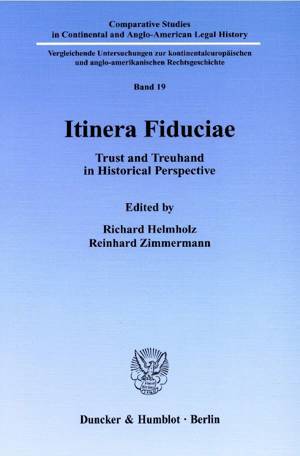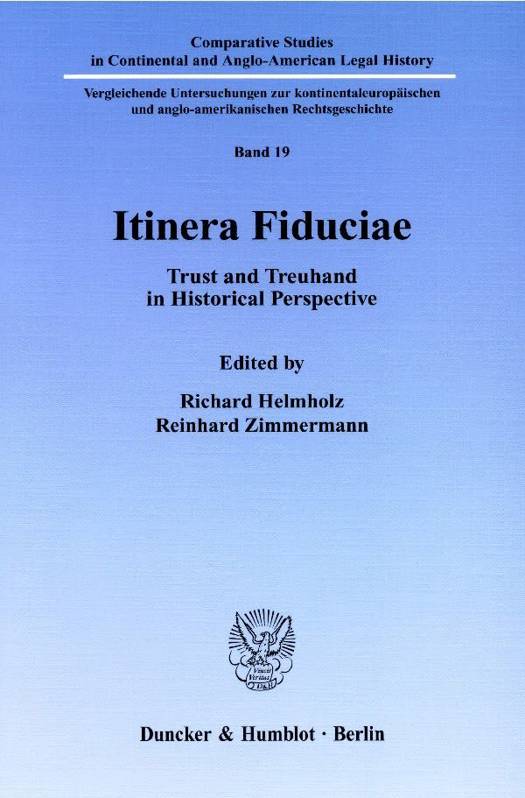
Bedankt voor het vertrouwen het afgelopen jaar! Om jou te bedanken bieden we GRATIS verzending (in België) aan op alles gedurende de hele maand januari.
- Afhalen na 1 uur in een winkel met voorraad
- In januari gratis thuislevering in België
- Ruim aanbod met 7 miljoen producten
Bedankt voor het vertrouwen het afgelopen jaar! Om jou te bedanken bieden we GRATIS verzending (in België) aan op alles gedurende de hele maand januari.
- Afhalen na 1 uur in een winkel met voorraad
- In januari gratis thuislevering in België
- Ruim aanbod met 7 miljoen producten
Zoeken
Itinera Fiduciae
Trust and Treuhand in Historical Perspective
€ 257,95
+ 515 punten
Omschrijving
A person may hold property for a variety of purposes. The most common situation is that he wants to use and enjoy it for his own benefit. But he may also have agreed to administer the property either for the benefit of someone else or to further some particular purpose. Thus, in a broad and untechnical sense of the word, he may hold it "in trust". This kind of arrangement has been resorted to for many different reasons, both legitimate and illegitimate. From very early on, European legal systems have been faced with the need to establish rules and, eventually, institutions to deal with the resulting legal problems. Fiducia, fideicommissum, Treuhand, foundation, executorship and, of course, the trust: they all provided, at some time or other and in some place or other, the legal framework that was required.The present volume attempts to present a comparative historical analysis of these devices. It seeks to trace the paths of the idea of "holding for others" or of holding property in a fiduciary capacity: itinera fiduciae. And it comes to the conclusion that historical connections can be drawn between the English trust and the Continental legal tradition. The common features and the common sources evident on both sides of the Channel mean that no wall of incomprehension separated the English trust from analogous institutions on the Continent. On this account, Otto von Gierke's often quoted remark to F. W. Maitland ("I do not understand your law of trusts") gives a misleading impression. If, as seems to be happening today, modern European law incorporates the trust, there is much to suggest that it will be building upon historical foundations.
Specificaties
Betrokkenen
- Uitgeverij:
Inhoud
- Aantal bladzijden:
- 544
- Taal:
- Engels
- Reeks:
- Reeksnummer:
- nr. 19
Eigenschappen
- Productcode (EAN):
- 9783428096145
- Verschijningsdatum:
- 16/12/1998
- Uitvoering:
- Paperback
- Formaat:
- Trade paperback (VS)
- Afmetingen:
- 155 mm x 231 mm
- Gewicht:
- 7248 g

Alleen bij Standaard Boekhandel
+ 515 punten op je klantenkaart van Standaard Boekhandel
Beoordelingen
We publiceren alleen reviews die voldoen aan de voorwaarden voor reviews. Bekijk onze voorwaarden voor reviews.








